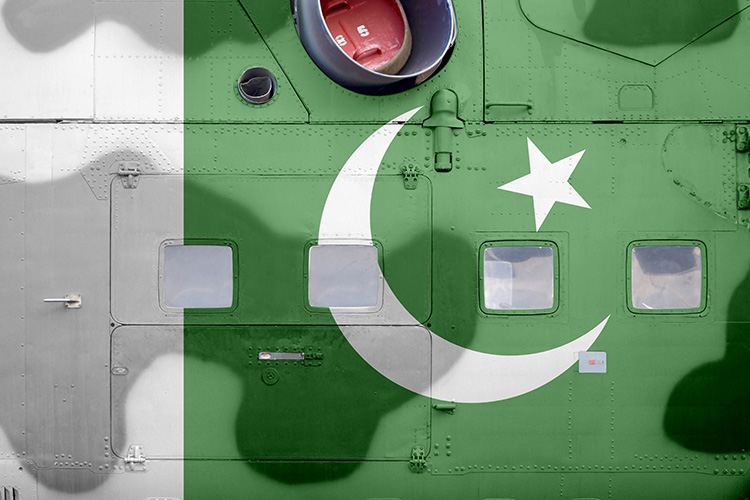Author Recent Posts Sumayya Shafique Latest posts by Sumayya Shafique (see all) Pakistan and TTA-Why expectations of Pakistan were not met? – August 25, 2023 Scope of Caretaker government and recent developments – August 10, 2023 Ensuring food security of Pakistan through agricultural mechanization and modernization – August 10, 2023
The delicate relationship between Pakistan and the Tehreek-e-Taliban Afghanistan is subject to upheavals and is complicated by the tale of two subsequent alliances. Recent events have shed light on these two parties’ interactions, exposing an interconnected web of expectations that frequently go unfulfilled. The Taliban takeover in Afghanistan followed by withdrawal of NATO troops led to the high hopes for Pakistan’s cooperation with the new regime. Soon the country’s hopes regarding eradication of Afghan based terrorism have been thwarted due to geopolitical upheavals, different priorities, internal difficulties, and lack of will in implementation of Doha Agreement.
Owing to Pakistan’s unfavorable reputation in Afghanistan, the Taliban are wary of being perceived as Islamabad’s puppet. Incidents such as defeat of Afghanistan in a cricket match in September 2022 unveil long-standing animosity between the two nations, sparking ugly scenes on the field as Afghan fans tossed plastic chairs at their Pakistani counterparts and stoked arguments on social media. Supporters of Pakistan described the Afghans who had spent decades living there as refugees as being ungrateful and unthankful, and many Afghans responded by denouncing all Pakistanis as “terrorists.”
Afghanistan is now clearly more peaceful than it was two years ago, but there are still certain areas of violence that raise concerns about increased insecurity for other countries especially Pakistan. According to Doha Agreement, Taliban guaranteed to prevent the use of Afghan soil by terror groups against the protection of international community’s peace and intra-Afghan Dialogue that will lead to political settlement within the country. But, by far the Taliban have failed the country that assisted them from peace deal negotiations to the advocation in international community for humanitarian support. Safe havens for TTP fighters are still nurturing lethal terrorism against Pakistan despite TTA’s commitment of not letting any group using Afghan soil for terrorism in any other country.
The TTP, an illegal organization that carries out lethal attacks against the nation’s security forces, shares strong ideological and ethnic ties with Afghan Taliban; went through a government crackdown and internal disarray that seriously jeopardized its existence. The group had relocated itself to Afghanistan as a survival strategy and assimilated into the Taliban insurgency. But after the Taliban’s victory in Afghanistan, the TTP has acquired new and more advanced weapons, moved fighters from Afghanistan to Pakistan and is once again concentrating on its conflict with the Pakistani government.
Compared to the Pakistan’s relations with Ghani Administration the saga of Pakistan’s expectations rooted from the Taliban takeover of Afghanistan, allegedly believing that the former’s security interests will be strengthened by an amiable Kabul government. One estimate stated that by August, a year after the Taliban’s control of Afghanistan, there has been 51% increase in militant assaults in Pakistan, with more than 75% of them occurring in Khyber Pakhtunkhwa. However, Taliban government in Kabul has not been vigilant in addressing Pakistan’
There are also apprehensions that, Afghan Taliban can use TTP against Pakistan as a strategic leverage by repeating the history when Pakistan did the same by using Afghan Taliban as ‘Reverse Strategic Depth’ against Ashraf Ghani government. TTA can pressurize Pakistan to gain support for the regime internationally and for the other strategic and economic interests. Furthermore, Pakistan’s long-standing objective in Afghanistan to have a dependent regime next door has been severely damaged by the Afghan Taliban’s interest in training its troops by Indian administration.
In the wake of an increase in attacks on Pakistani security personnel, Pakistan and the administration in Afghanistan decided to increase commerce and reduce tensions along their border, in May 2023 during a meeting of Afghan and Pakistani Foreign Minister. Pakistan continues to advocate international humanitarian and financial aid for the war-torn country led by TTA. Foreign Minister of Pakistan Bilawal Bhutto said that the rest of the world must understand that leaving Afghanistan is not the answer. It is crucial to keep them engaged and push them toward the crucial reforms and political setup to avoid the rise of any other terror group in the region. Besides, Afghanistan’s new administration became more of a burden than an asset for Islamabad as a result of its economic and diplomatic isolation in international community.
The divergence between Afghanistan’s de facto rulers’ promises and actions has grown as 15th Aug marks the two-year rule of TTA. Furthermore, as they are hoping to attain international recognition, it is imperative to fulfil the commitments made during Doha Agreement, to gain confidence of international community. It is crucial for Pakistan to avoid taking mediation services from TTA while negotiating with TTP in future to avoid the strategic leverage attained by them. Recognizing the intricacies and unknowns surrounding, this relationship is essential to develop a more informed strategy. The voyage of Pakistan and the TTA serves as a reminder that expectations are frequently overridden by the compelling forces of reality in the world of geopolitics, prompting stakeholders to consistently negotiate with alertness.
- Pakistan and TTA-Why expectations of Pakistan were not met? - August 25, 2023
- Scope of Caretaker government and recent developments - August 10, 2023
- Ensuring food security of Pakistan through agricultural mechanization and modernization - August 10, 2023












Leave a Comment
Your email address will not be published. Required fields are marked with *